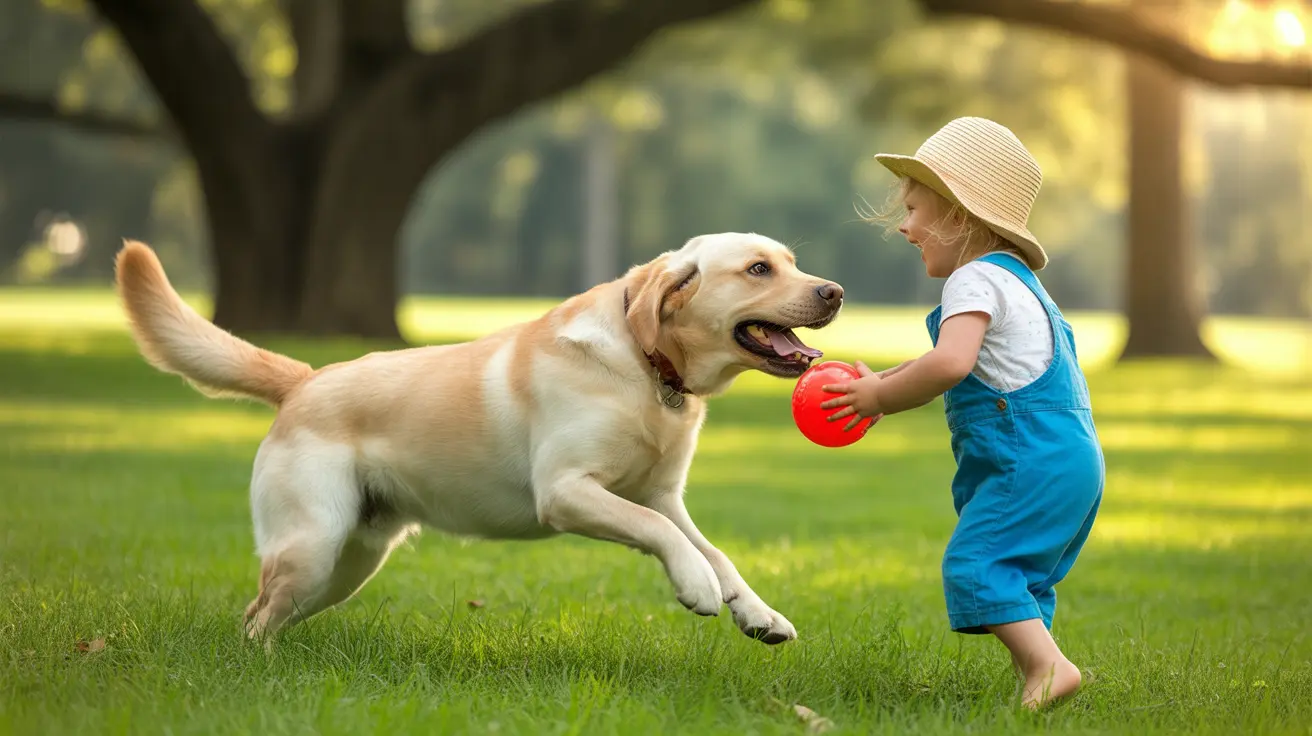Looking for a four-legged friend who'll shower you with love and affection? Understanding the friendliest dog breeds can help you find the perfect match for your family and lifestyle. From gentle giants to sociable small breeds, let's explore the characteristics and care requirements of dogs renowned for their friendly personalities.
What Makes a Dog Breed Friendly?
A dog's friendliness stems from a combination of genetics, breeding history, and early socialization. The most amiable breeds typically display natural sociability, adaptability, and an eagerness to interact with humans and other animals. These traits have been carefully cultivated through generations of selective breeding for companionship.
Top 10 Friendliest Dog Breeds
1. Labrador Retriever
America's most popular breed for over 30 years, Labradors excel in friendliness. These versatile dogs combine gentle temperaments with playful energy, making them ideal family companions. Their intelligence and eagerness to please also make them popular choices for therapy and service work.
2. Golden Retriever
Known for their patient and loving nature, Golden Retrievers consistently rank among the most affectionate breeds. Their calm demeanor and natural gentleness with children make them exceptional family dogs.
3. Cavalier King Charles Spaniel
These compact companions offer royal charm and endless affection. Perfect for apartments or houses, Cavaliers adapt well to any living situation while maintaining their characteristically friendly disposition.
4. Beagle
Originally pack hunters, Beagles bring their social nature into family life. Their merry personality and gentle disposition make them excellent companions for active households.
5. Poodle
Available in three sizes, Poodles combine intelligence with sociability. Their hypoallergenic coat makes them especially attractive to families with allergies, while their friendly nature ensures they fit well in various household dynamics.
Care Requirements for Friendly Breeds
Exercise Needs
Most friendly breeds require regular physical activity to maintain their happy disposition. Labs and Golden Retrievers need significant daily exercise, while smaller breeds like Cavaliers can manage with moderate activity levels.
Training and Socialization
Early socialization is crucial for developing and maintaining friendly temperaments. Positive reinforcement training helps strengthen the natural sociability of these breeds while ensuring good manners.
Mental Stimulation
Friendly breeds often have high intelligence levels and require mental engagement to prevent boredom. Interactive toys, training sessions, and social activities help keep them mentally satisfied.
Choosing the Right Friendly Breed
Consider your lifestyle, living space, and available time when selecting a friendly breed. High-energy breeds like Labs need more exercise, while apartment-friendly options like Cavaliers adapt well to smaller spaces. Also factor in grooming requirements and potential health considerations specific to each breed.
Frequently Asked Questions
What are the top 5 friendliest dog breeds recommended for families?
The top five friendliest family dogs are Labrador Retrievers, Golden Retrievers, Cavalier King Charles Spaniels, Beagles, and Poodles. These breeds consistently demonstrate gentle temperaments and patience with children.
How do I determine if a dog breed is suitable for my lifestyle based on its energy level and grooming needs?
Assess your daily schedule, living space, and commitment to exercise and grooming. Match these factors with breed characteristics, considering exercise requirements, grooming frequency, and space needs.
What role does early socialization play in developing the friendliness of a dog?
Early socialization is crucial in developing a well-adjusted, friendly dog. Exposure to various people, animals, and environments between 3-16 weeks of age helps create positive associations and confident behavior.
Are there any hypoallergenic dog breeds that are known for being friendly and suitable for households with allergies?
Yes, Poodles, Portuguese Water Dogs, and Maltese are examples of friendly, hypoallergenic breeds. These dogs produce fewer allergens while maintaining sociable personalities.
How can I ensure my dog remains friendly and well-adjusted as it grows older?
Maintain consistent positive training, regular socialization opportunities, and proper exercise throughout your dog's life. Regular veterinary care and mental stimulation also contribute to maintaining a friendly disposition.
Conclusion
The friendliest dog breeds offer wonderful companionship and adaptability to various living situations. Whether you choose an energetic Labrador or a gentle Cavalier, remember that proper training, socialization, and care are essential for bringing out the best in these naturally friendly companions.






